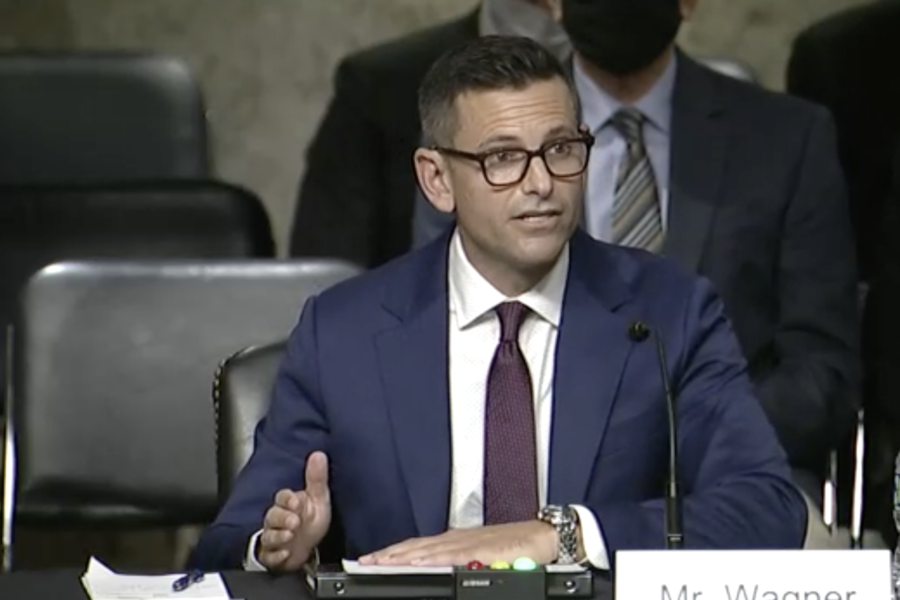Alex Wagner, the Biden Administration’s nominee to be assistant secretary of the Air Force for manpower and reserve affairs, said in his Senate confirmation hearing Oct. 5 that he’ll make expanding diversity and attacking the problems of suicide and sexual harassment his priorities if confirmed. He also pledged to expand recruitment in the Northeast of the U.S.
Wagner said the Air Force needs to step up its recruitment and will do so by ensuring the service reaches out across the full spectrum of candidates. He thanked President Joe Biden, Defense Secretary Lloyd J. Austin III, and Air Force Secretary Frank Kendall for their confidence in him and allowing him to “contribute as an openly gay man,” who is able to serve as an example of how the military offers “the opportunity that now empowers us to bring our authentic selves to this important mission.”
Kendall has pledged a strong emphasis on diversity. The nomination of Wagner, as well as the confirmation in July of Gina Ortiz Jones as the first gay woman of color to serve as the undersecretary of the service, signal the seriousness of the administration in this regard. The Air Force has recently reported on service surveys that indicate that the Air Force is making little progress in addressing racial disparities in advancement within the ranks.
Diversity “is not only the right thing to do, but it also offers us strategic advantages,” Wagner said in colloquy with Sen. Angus King (I-Maine).
Wagner also pledged an unrelenting effort to prevent suicides and sexual harassment in the service and agreed with several Senators, including Kirsten Gillibrand (D-N.Y.) that taking criminal prosecution of rape out of the chain of command should be explored more intensively.
“There’s clearly value in moving significant crimes out of the chain of command with respect to sexual violence,” Wagner said. “I’ll have to look into the data” as to whether murder and other serious criminal offenses should be dealt with the same way, he said. “I’m aware that prosecution of some of these crimes has been disproportionate, based on race.”
He said service members deserve a military justice system “worthy of the sacrifices they make every day” and said “stamp[ing] out the scourge” of sexual assault, sexual harassment, child abuse, and other violent crimes would be “one of my top priorities, if confirmed.”
Wagner referred to the Air Force’s disparity review from earlier this year, and a “progress report” within the last month, saying, “I take disparities in racial prosecutions extremely seriously, and if confirmed, I would really look forward” to working with the committee to ensure that all crimes are prosecuted “free of bias,” both “in terms of the victims, as well as those who have been charged.”
Wagner agreed with King, who expressed dismay that the U.S. now disproportionately recruits from the South, Southwest, and Midwest states and draws fewer than a third of service members from the Northeast. King said it may have to do with a dearth of military bases in the region, thus giving local students few role models for military service. Wagner noted that he grew up in Los Angeles, Calif., and went to school in Rhode Island, with “scarce ability to interact with people who served … and have people to look up to” in the military.
King asked Wagner and the Army nominee for installations and the environment, Rachel Jacobson, to “make a conscious effort to address this problem, … not just an additional recruiting office in Boston or something, …. because the numbers are pretty startling, to have gone from an even distribution [of recruits] in 1975 to two-thirds [versus] one-third today. That, to me, is a shocking change.”

